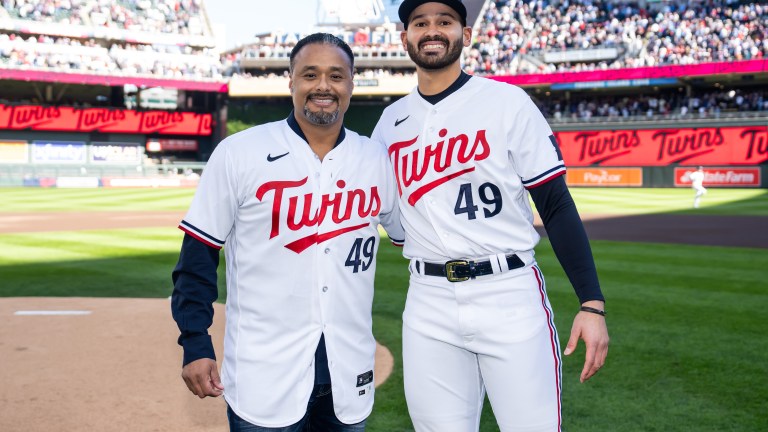Re-Award Season: 2006 AL MVP, Johan Santana
The 2006 AL MVP was a great race between Justin Morneau and Derek Jeter. But really there was a pitcher who should have won the award.

Some history is revisionist history. With respect to those honored with postseason awards, there were instances in which someone was more deserving. Understanding changing criteria and added scrutiny recently toward the voting process, we began our look back at awards that need a redo.
Five World Series rings. More than 3,400 hits, ranking sixth all-time. Captaincy with the New York Yankees. His No. 2 retired with a plaque in Monument Park. The highest percentage of Hall of Fame induction for a position player. Notoriety that goes beyond the sport.
It’s hard to find something Derek Jeter didn’t accomplish in terms of on-field baseball merits. Except when you examine his regular season honors.
Several times Jeter could have been recognized for being the most important player on the many teams in which played a pivotal role. Many felt in the aftermath of the 2006 AL MVP decision, in which Justin Morneau took the prize, that Jeter deserved it.
The Twins first baseman prevailed in one of the closest votes ever, garnering 320 points to Jeter’s 306 and 15 of a possible 28 first-place choices.
Just as was the case with Stieb-Vuckovich in ’82, Clemens-Welch in ’90, and Bonds-Pendleton in ’91, emotion is of no importance here when it comes to us re-examining the most worthy.
Let’s briefly compare Jeter’s final statistics to Morneau’s. For bWAR: Jeter 5.6, Morneau 4.3. For runs scored: Jeter 118, Morneau 97. For slash line: Jeter’s at .343/.417/.483 to Morneau’s .321/.375/.559.
The Yankee shortstop checks the majority of the boxes, but Morneau clearly wins in home runs (34) and runs batted in (130). Between these two, Jeter has the edge in what was one of his best years. He did win the Gold Glove Award, but with a -16 defensive runs saved it looks like a mistake retroactively.
Because the debate of the ’06 AL MVP usually involved the principles mentioned, the case for Johan Santana (Morneau’s teammate) gets overlooked. Yet, it’s a very strong case. In fact, it should overtake every other candidate.
Santana entered the rarefied air of a pitcher’s Triple Crown: leading the American League in victories with 19, earned run average with 2.77, and strikeouts with 245. Beyond that, he topped the AL in innings pitched, WHIP, FIP, ERA+, games started, and strikeouts per nine.
And with a 7.6 bWAR, Santana had by far the highest output of all junior circuit contenders. If WAR is the best measure of value as many feel, then Johan stands above the rest. As you might expect, he was easily chosen as the league’s Cy Young Award winner — the second of his career.
Unfortunately for Santana, he was swimming against a current of voters less keen on giving a pitcher an additional award no matter how good or important said pitcher might be.
To some, the Cy Young is quite enough hardware. That, plus the belief that a pitcher doesn’t have the same effect on a daily basis as a position player has. The last time an AL pitcher also held the MVP was Dennis Eckersley 14 years ago. It hadn’t happened in the NL since Bob Gibson in ’68.
There are times in which dominance on the mound is overwhelming, especially when the overall performance around the rest of the league is relatively less impressive. And that’s the situation we encountered in 2006.
To counter the argument that a starter influences every fourth or fifth game, they usually have more influence on the outcome of the game they pitch than a position player might have over a stretch of four or five contests.
Plus, a quality start can have an uplifting and positive ripple effect on the rest of the team. In ’06, the Twins won 27 of the 34 times Santana took the mound. Momentum is said to be “the next day’s starting pitcher,” but it can also be a true ace.
Truthfully, Derek Jeter deserved that particular AL MVP more than Justin Morneau did. But only because Morneau wasn’t the most valuable player on his own team.
